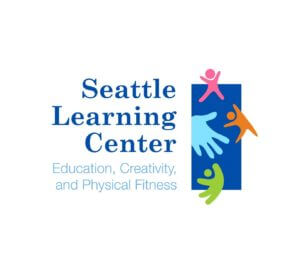As we approach our first big break in the school year teachers are likely experiencing some level of teacher burn-out. Because of virtual learning, parents are playing the role of teachers as well. We hope that this upcoming break will allow some time for relaxation and ease some of the new pressures we are collectively facing as a society fighting a pandemic. As you regather yourself and prepare for the final push of 2020, we wanted to share these words with you from Dr. James Corner. We feel that his philosophy on education and development is in line with our goals and philosophy at Seattle Learning Center. We hope that you find comfort in what he has to say and we are here cheering you on, parents, teachers, essential workers, and caregivers.
The following is a message from Dr. James Comer, founder of the Comer School Development Program and professor of child psychiatry at Yale University. With school not in session, it’s time for the home environment to provide what Dr. Comer describes below.
“You know the purpose of the school is not just to raise test scores, or to give children academic learning. The purpose of the school is to give children an experience that will help them grow and develop in ways that they can be successful, in school and as successful adults. They have to grow in a way that they can take care of themselves, get an education, take care of a family, be responsible citizens of the society and of their community. Now you don’t get that simply by raising test scores.
“Our program [at Yale] focuses on the socially interactive aspects of development so that children learn how to manage themselves in a whole variety of situations, and become responsible for managing themselves in a constructive respectful way.
“You are missing a big chunk of [children’s] development if you focus only on curriculum, instruction, and assessment because there is much, much more to being successful in this world.
“Think of it as an adult. What do we do every day? We have to go out in the world, interact with people, get along well with people. We have to elicit a positive response from the people around us in a whole variety of situations. Where do you learn to do that?
“Some children if they’re lucky learn to do it at home, but you should learn to do it at school as well. But the school ignores that part of their growth and development. By focusing on social interactive, psycho-emotional, and moral-ethical education you get improved linguistic expression and reception. And you get improved academic achievement. So you get to the whole spectrum of needs and demands that children will need to be able to function in society.”
Your kids are where they need to be in this present moment and you are doing a wonderful job.
If you have any questions or need any resources please know that you can always reach out to us.
Happy Thanksgiving,
Seattle Learning Center

Social Intelligence (referenced on home page)
“Hey Parents, Leave Those Kids Alone”
Risk is Essential to Childhood
Raising an Emotionally Intelligent ChildLove and Logic
How Can Exercise Improve Learning?
How to Choose the Right Kindergarten School
Brain Rules for Baby by John Medina Book Summary
The Hurried Child
Miseducation- Preschoolers at Risk- Book Review
Caring for Infants with Respect
Stress Management- How to Become Calm
